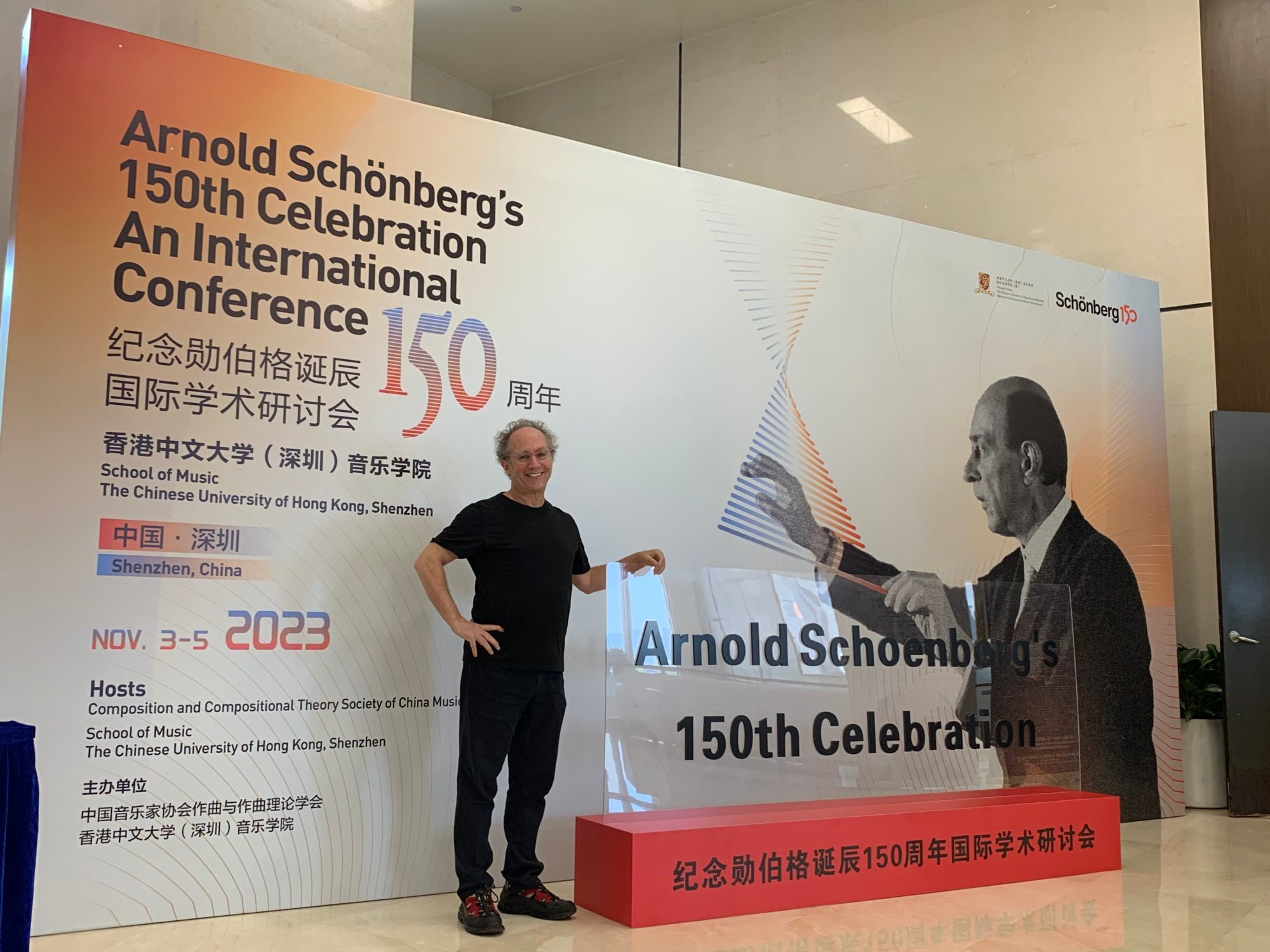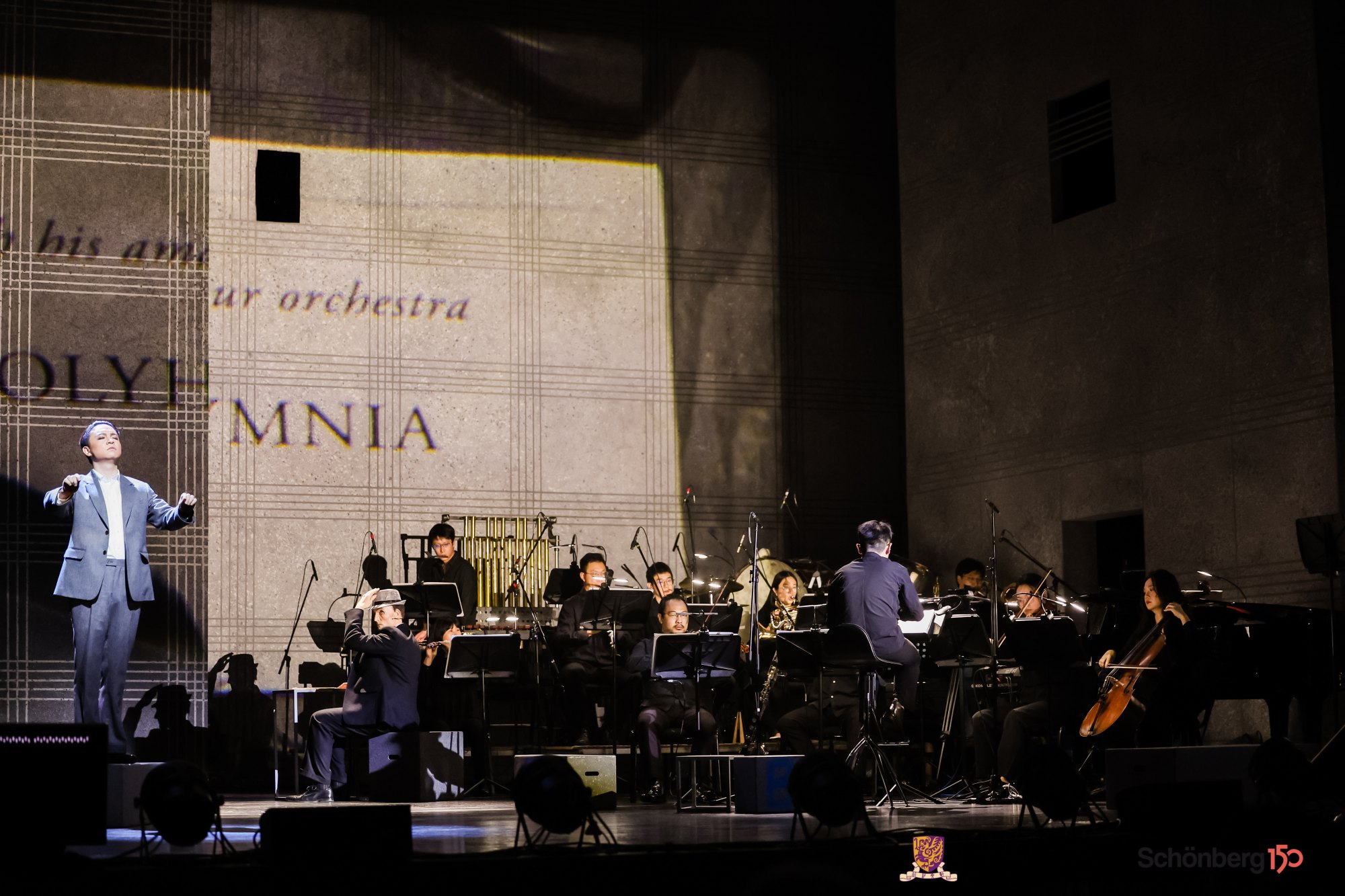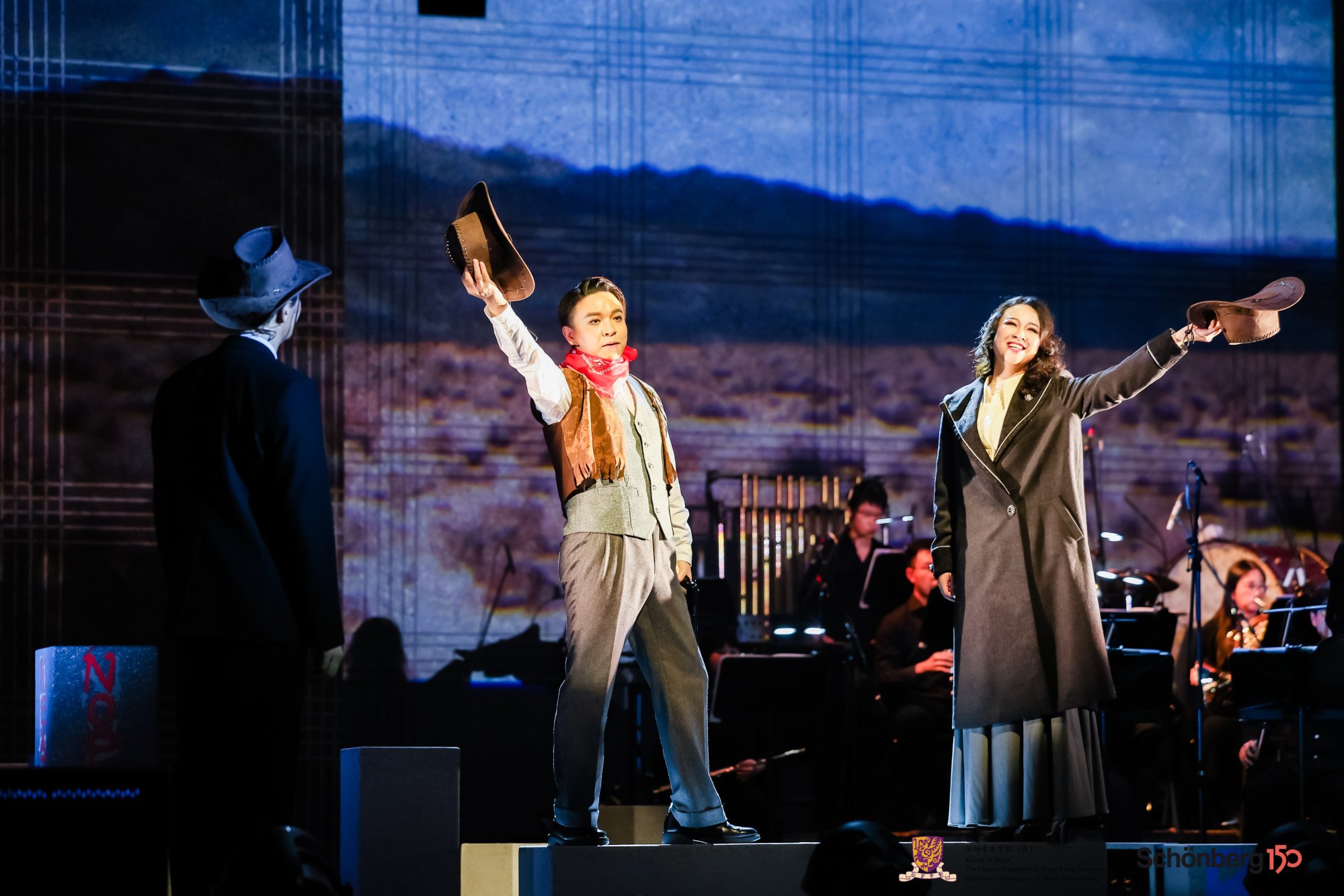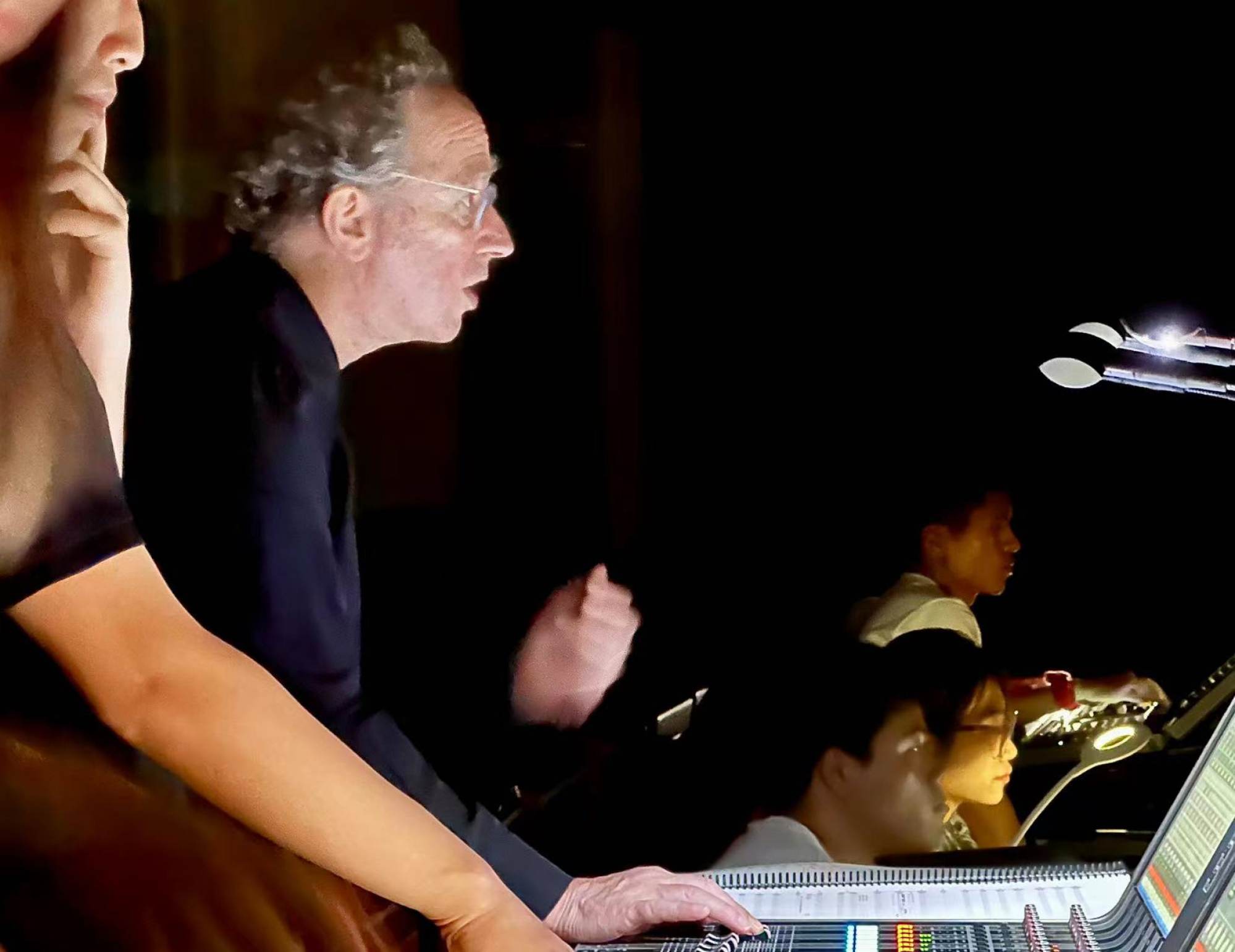
How an opera about Harpo Marx introducing Marmite modernist composer Arnold Schoenberg to Hollywood producer Irving Thalberg went down in Shenzhen, China
- Tod Machover was full of praise for the young singers who gave his opera Schoenberg in Hollywood its first public performance in China, at a Shenzhen symposium
- The opera, about the divisive composer Arnold Schoenberg’s life after fleeing antisemitism in Europe, had themes its mainly young Chinese cast found challenging
The year 2024 is the 150th anniversary of Arnold Schoenberg’s birth in a Jewish part of Vienna.
The son of a shoemaker and a piano teacher, Schoenberg grew up to become a composer and, like his near-contemporary James Joyce, is what might be called a Marmite creative: people either worship him as the father of 20th-century composition or revile him as the man who developed atonal music.
His very name can incite nervousness; in 1924, Alban Berg, one of his students who would also become a famous composer – his oeuvre includes the operas Wozzeck and Lulu – wrote an essay titled “Why is Schoenberg’s Music So Difficult to Understand?”
Events in honour of this maestro of complications officially begin in January but, earlier this month, the Chinese University of Hong Kong (CUHK), Shenzhen kicked off celebrations with an international Schoenberg conference.

The highlight of the weekend event was a performance of Schoenberg in Hollywood by American composer Tod Machover.

The link in this unlikely chain is Ping Jin, a composer himself and associate dean of CUHK-Shenzhen’s School of Music.
The school is two years old – its new campus won’t be finished until 2024 – and its founding dean, Xiaogang Ye, is keen to engage with the international musical community. The original idea, however, was to host only the symposium.
“But it’s a little bit boring just reading the papers and, with Schoenberg, people talk about his theory and compositional technique,” Jin says, with a smile.
I really hesitated about coming, I kept saying it’s a long way and I’m not a kid any more
When Jin studied at the University of Cincinnati, in the United States, his teacher was Severine Neff, a renowned Schoenberg scholar who has close ties to the Arnold Schoenberg Centre, and is now at the University of North Carolina.
“Last year, we had a Zoom meeting with Arnie Schoenberg, who is Arnold’s grandson. He brought up the idea of an opera about Arnold Schoenberg, and mentioned there was one by Tod Machover. I knew Tod’s name, and The Brain Opera, and I liked the idea of multidimensional opera with audio, video and acting,” Jin says.
Machover’s The Brain Opera, first performed in 1996, employed a mixture of custom-made electronic instruments and audience involvement.

At the time, he’d said he wanted to break down divisions – between art and technology, between top-down authority and anarchy, between the “right-brain, left-brain gobbledegook” – and he has continued to do so ever since.
He cares deeply about connections, especially between past and present.
In this context, the past meant not only Schoenberg but Severine Neff: when Machover was a student at New York private performing arts conservatory Juilliard, one of his close friends, composer Joel Feigin, had been dating – and later married – her.
He loves the theatre. He wants the rest of Hong Kong to love it too
“I really hesitated about coming, I kept saying it’s a long way and I’m not a kid any more,” Machover, who turns 70 on November 24, says.
“The press about China is so bad in the US now and people aren’t interested in telling stories about what could be done. But for me, it’s like a renewal of understanding. It’s a completely different world, a new world.”

Those words echo the opening refrain of Schoenberg in Hollywood, which is set in 1935, when the composer fled antisemitic, pre-war Europe for the United States:
“We are America! We are the New World! Now you are safe, we have made you safe, so give thanks …”
The opera’s genesis is a real-life meeting between Schoenberg and film producer Irving Thalberg, apparently engineered by Harpo Marx of comedy group Marx Brothers fame.
US-based Chinese artists explore feelings of displacement in Hong Kong shows
As it happens, the encounter provides a Chinese connection: Thalberg asked Schoenberg to write the score for the film The Good Earth, based on the Pearl Buck novel of peasant life in China.
Schoenberg, however, wanted total control and insisted that he must control the pitch of the actors’ speech. He also demanded twice the fee Thalberg was offering. Negotiations failed and Schoenberg never wrote a Hollywood film score.
“Schoenberg had an incredible gift for having just about everybody turn against him,” Machover says. “There’s a new book out by Harvey Sachs called Why Schoenberg Matters, that posits it was a kind of insecurity – part of his personality was to set up situations that always ended in some kind of confrontation.
“It’s just crazy that Vienna, the city that really loathed him and threw stuff at him during his concerts, is where his archive ended up and where there are these people who are incredibly devoted to him.
“So here I am in China at this symposium with, on the one hand, people who care a huge amount and, on the other, with people who may not care at all.”
‘The one safe place for dialogue’: Sino-US cultural exchanges pick up
The district government responsible for the Longgang Cultural Centre, where the opera had its one-night performance, falls into the latter category.
“I think they didn’t really care if it’s Schoenberg or Stravinsky,” Jin says. “But we told them first-rate scholars will be gathering here and it will bring Longgang a lot of good.”
This was music to official ears who made the cultural centre’s Grand Theatre – including its staff and electricity, as Jin prudently observes – available, free, for a week. Attendance would be by invitation to faculty students and friends.
Machover arrived, a little apprehensively, at rehearsals on Monday morning for the Saturday performance. Usually, the process takes a minimum of four weeks.
Apart from the role of Schoenberg, sung by baritone Marco Di Sapia, who had also performed the role in Vienna, everyone involved was Chinese. It was only a three-principal cast and a 15-strong orchestra, plus a large production team, but Machover had never met any of them in real life.
“And oh my God, they were so well prepared, so thoughtful, so young.”

Shenzhen’s staging stayed close to that of the Boston production, although there were some essential tweaks. The opera, as its title suggests, tells the story of Schoenberg through the history of music, but also of Hollywood films that aren’t necessarily familiar to a Chinese audience.
During a key moment when Schoenberg encounters antisemitism, the director, Shi Jingfu, was puzzled by a visual reference, via moustache and cigar, to the Marx brothers. It was dropped.
This musical ensemble plays a message of hope for the Middle East
He also recognises that particular storyline was less relevant in China. “We’ve been able to look at it in a more general way – what does it mean to be a refugee? What does it mean to find your identity? What does it mean to be both an individual and part of a society? These are questions for all of us.”
On the Saturday night, the performance sounded, and looked, faintly alien yet enticingly alive. Its very difference made it attractive. Machover said he wanted the work “to be infused with Schoenberg but not a pastiche”.
He’s a passionate, generous man who did his best to engage with audience members who came onstage afterwards. He says he was struck by the relatively muted response at the end – the loudest cheers were from the handful of visiting Schoenberg symposium scholars – followed by this instinctive yearning to learn more about a new musical flavour.

“In some ways I like it better than the Boston performance,” says Professor Joseph Auner from Tufts University, who wrote the original programme preface and was in Shenzhen for the symposium. “It felt very intimate, I could hear things more clearly. It’s remarkable to see the idealism and the ambition to do something so challenging.”
Earlier in the week, Jin reveals, the two Chinese leads had gone to the director to say the opera was too difficult and to ask that it be performed in a concert version. Yet everyone persevered.
“Ping knew the kind of thing he wanted,” Severine Neff says. “I wrote to Tod that this was important because we need to go global, we need to use art to spread humanity between people. This is their first go and it couldn’t be slick.
“That intensity and drive came through – it’s like an inner fire, propelling people forward into new places.”
